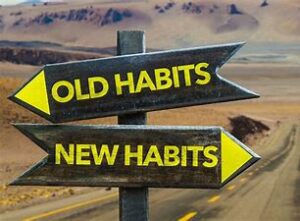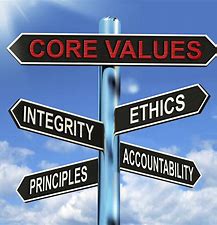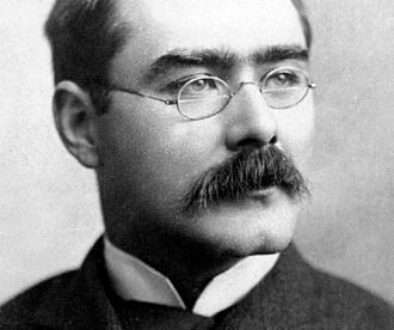Character – What It Is and Why and How to Cultivate It
Menanteau Serfontein – 29 December 2020. Updated 28 February 2021. Updated 14 December 2021.
What is Character?
Character is the mental and moral qualities distinctive to an individual, i.e. a person’s values, principles and inner moral compass, based on a set of norms, assumptions, beliefs, thoughts, perceptions, habits of behaviour, likes and dislikes. In the context of the topic of values, principles and character dealt with here, the concept of character will be regarded as the product of the types of values and principles that a given person has internalized and lives by.
In his book “The Road to Character”, David Brooks states that character is a set of dispositions, desires, and habits that are slowly engraved during the struggle against your own weakness. You become more disciplined, considerate, and loving through a thousand small acts of self-control, sharing, service, friendships, and refined enjoyment. Character is built in the course of your inner confrontation. He says that over the past few decades, we have built a moral ecology around the Big Me, around the belief in a golden figure inside. This has led to a rise in narcissism and self-aggrandisement. Brooks suggests that balance needs to be restored and that eulogy virtues that foster meaning and purpose should be revived such as a life well lived—kindness, compassion, love, humility, wisdom, courage, and integrity.
Brooks says the following: “The things that lead us astray are short term – lust, fear, vanity, gluttony. The things we call character endure over the long term – courage, honesty, humility. People with character are capable of long-term obedience in the same direction, of staying attached to people and causes and callings consistently through thick and thin. They are not infinitely flexible, free-floating and solitary. They are anchored by permanent attachments to important things. In the realm of the intellect, they have a set of permanent convictions about fundamental truths. In the realm of emotion, they are enmeshed in a web of unconditional loves. In the realm of action, they have a permanent commitment to tasks that cannot be completed in a single lifetime.
Over the centuries, our ancestors built up a general bank of practical wisdom, traditions, habits, manners, moral sentiments, and practices. The humble person understands that wisdom is not knowledge. Wisdom emerges out of a collection of intellectual virtues. It is knowing how to behave when perfect knowledge is lacking. 
The person who successfully struggles against weakness and sin may or may not become rich and famous, but that person will become mature. Maturity is not based on talent, or any of the mental or physical gifts that help you to ace an IQ test or run fast or move gracefully. It is not comparative. It is earned not by being better than other people at something, but by being better than you used to be. It is earned by being dependable in times of testing, straight in times of temptation. Maturity does not glitter. It is not built on the traits that make people celebrities. A mature person possesses a settled unity of purpose. The mature person has moved from fragmentation to centredness, has achieved a state in which the restlessness is over, the confusion about the meaning and the purpose of life is calmed. The mature person can make decisions without relying on the positive and negative reactions from admirers or detractors, because the mature person has steady criteria to determine what is right. That person has said a multitude of noes for the sake of a few overwhelming yeses.”
Moral discipline is a key component of Character. Robert Elliott Speer, The Stuff of Manhood, Some Needed Notes on American Character, wrote that self-control, obedience to duty, the willingness to endure hardship and a zest for arduous undertakings, summed up as discipline and austerity, are key qualities of good character.
Speer states that “As we are faced with varying circumstances each day and judge and decide how to act, our actions become our habits, and our habits become our character”. Speer goes on to say that a “person is characterized by his deeds ….. character is a habit of will”. The formation of character comes about through “the constant, habitual, hurried, routine acts of common life … ”
The formation of character includes making choices all the time between our basic instincts and impulses versus decisions based on what is right in terms of our values (moral principles), irrespective of the circumstances. The result of these choices culminate in our conduct which is a demonstration of our character.
Our character, basically, is a composite of our habits.  In the words of Ralph Waldo Emerson: “Sow a thought and you reap an action, sow an act and you reap a habit; sow a habit and you reap a character, sow a character, reap a destiny.”
In the words of Ralph Waldo Emerson: “Sow a thought and you reap an action, sow an act and you reap a habit; sow a habit and you reap a character, sow a character, reap a destiny.”
Why Cultivate Character Development?
Ralph Waldo Emerson said “Men of character are the conscience of the society to which they belong”. During the early stages of the formation of the United States of America, the view was that the commitment to living a life of character was the key in the success or failure of the republican experiment. Thomas Jefferson said that “The steady character of our countrymen is a rock to which we may safely moor.” What James Madison, Virginia Ratifying Convention, 20 June 1788 wrote, can be summarised as follows; he referred to the key republican principle, that the people will have the necessary virtue and intelligence to choose men of virtue and wisdom to represent them in government. In the absence of virtue, no form of government can render the country secure. To suppose that any form of government will secure liberty or happiness without any virtue in the people, is a chimerical idea (i.e. hoped for, but illusory or impossible to achieve).
Character formation should not happen only automatically and by chance. We have an active role to play which requires effort and commitment. If we have lived an easy, indulgent life without much resistance and effort, and if we have allowed our basic instincts and impulses to reign freely without control, it becomes extremely difficult to break out of the habit; Speer says that we then end up obeying our caprices (i.e. sudden and unaccountable changes in mood or behaviour); follow any impulse; cannot stick to any task; do not know a principle when we see it; have no iron or steel anywhere in our character; are the riffraff of the world that the worthy men and women have to bear along as they go.
There is no freedom outside of character. Montesquieu says that liberty is not freedom to do just as we please.  Liberty is the ability to do as we ought. And the freedom that we need is not the freedom of caprice and whim and listening to our impulses. It is the freedom that enables our eyes clearly to see what right is, and then empowers us to do it. William George Jordan says “Into the hands of every individual is given a marvellous power for good or evil – the silent, unconscious, unseen influence of his life. This is simply the constant radiation of what man really is, not what he pretends to be.”
Liberty is the ability to do as we ought. And the freedom that we need is not the freedom of caprice and whim and listening to our impulses. It is the freedom that enables our eyes clearly to see what right is, and then empowers us to do it. William George Jordan says “Into the hands of every individual is given a marvellous power for good or evil – the silent, unconscious, unseen influence of his life. This is simply the constant radiation of what man really is, not what he pretends to be.”
Speer states that just as the companions we choose can mould our character, so can we mould others: We ourselves are the shapers and directors of the characters and the characteristics of some whom we meet or reach. This thought ought to give us a sense of added responsibility and of added anxiety. What we are, may settle the question of what a multitude of others shall be and shall do. Our lives and characters are entering into and becoming a part of the lives and characters of those whom we never knew until recently, and their lives and characters are entering into and becoming a part of ours. The composition of their and our characters is still in progress.
Do you accept the notion that it is essential for all of us to develop and strengthen our character?
How Character Development Happens
Character develops through what and how we think, say and behave. The more one thinks, speaks and does something, the better one gets at it and the more it becomes part of one’s being. Similarly, the more one refrains from thinking and speaking about something or behaving in a given way, the more suppressed it becomes. This can apply to anything, e.g. love or empathy.
There are many things that shape our character and our lives for better or for worse. It is influenced by things such as where we lived as children, how we were brought up, the examples and expectations of parents, teachers and others in positions of authority, friends, religious principles, education, etc.
Sometimes character can be transformed by significant events such as the death of a loved one, a debilitating illness, a serious accident. Such experiences may result in someone becoming disillusioned or cynical, or becoming more empathetic and compassionate. Crisis situations could also contribute to the formation of character, for example when someone steps in and adopts a leadership role under circumstances he has never been exposed to in the past.
The people with whom we surround ourselves, also play a key role in shaping our character, sometimes without us realising it. The people who cross our paths could be long term relationships or brief encounters. The influence of such experiences could be highly beneficial or severely detrimental. This could happen during one’s early developmental phases, or much later in life. According to Speer, our characters are in a formative state for as long as we live and are continually being re-shaped and re-directed, through the influence of those whom we get to know and admire during our lifetime.
Speer says that “Only hardness can make a great soul” and the cultivation of character gives us the inner exercise that makes our souls grow: … Smoothness of life is simply deadening because it keeps us out of what is real life ….” “A life of indulgence and ease”, Speer concludes, “leaves men and women weak, with no strength either themselves to bear or to achieve for others.”
Helen Keller says “Character cannot be developed in ease and quiet. Only through experience of trial and suffering can the soul be strengthened, ambition inspired, and success achieved.”
To get physically stronger, can only be achieved through physical effort. In the same way, our character can only become stronger when we have resistance, opposition and obstacles to overcome.  The easy, indulgent life is not conducive to the cultivation of virtuous values, principles and a strong inner moral compass which are the key components of an upright character. All this requires strenuous effort, deep experience, forming appropriate habits and effective self-control.
The easy, indulgent life is not conducive to the cultivation of virtuous values, principles and a strong inner moral compass which are the key components of an upright character. All this requires strenuous effort, deep experience, forming appropriate habits and effective self-control.
David Brooks says we should struggle with ourselves and in the process sacrifice worldly success for the sake of an inner victory. Character is built in the course of your inner confrontation.  In the struggle against your own weakness, humility is the greatest virtue with pride being the central vice. Pride makes cold-heartedness and cruelty possible. Because of pride we try to prove that we are better than those around us. Pride deludes us that we are the authors of our own lives.
In the struggle against your own weakness, humility is the greatest virtue with pride being the central vice. Pride makes cold-heartedness and cruelty possible. Because of pride we try to prove that we are better than those around us. Pride deludes us that we are the authors of our own lives.
In my own experience, it is indeed possible to make quite a lot of progress with the deliberate and disciplined inculcation of moral virtues and values through shear self-control and tenacity, however I have also experienced that this process became a lot easier and much more effective when I submitted to the lordship of Christ and living a spirit-filled life. I believe that redemption is through grace alone by faith and that we cannot achieve it in our own by living a good life in our own strength. As Brooks says, no person can achieve self-mastery on his or her own.
Does this mean that we have no role to play in the strengthening of our values and morality that culminates in the extent of the substance of our character? The answer is no, we have an obligation to actively co-labour with the spirit to continually shape and mould what and how we think, choose and speak and how we behave on a daily basis. 
Various factors beyond our control can play a role in shaping our character, however the greatest impact on our character are those factors that we have power over, i.e. the manner in which we respond to circumstances. The true test of character is whether one adheres to one’s moral principles and values, irrespective of severe temptation or painful repercussions. In short, one’s character should prevail irrespective of the circumstances, i.e. doing what is right under all circumstances, because it is the right thing to do.






